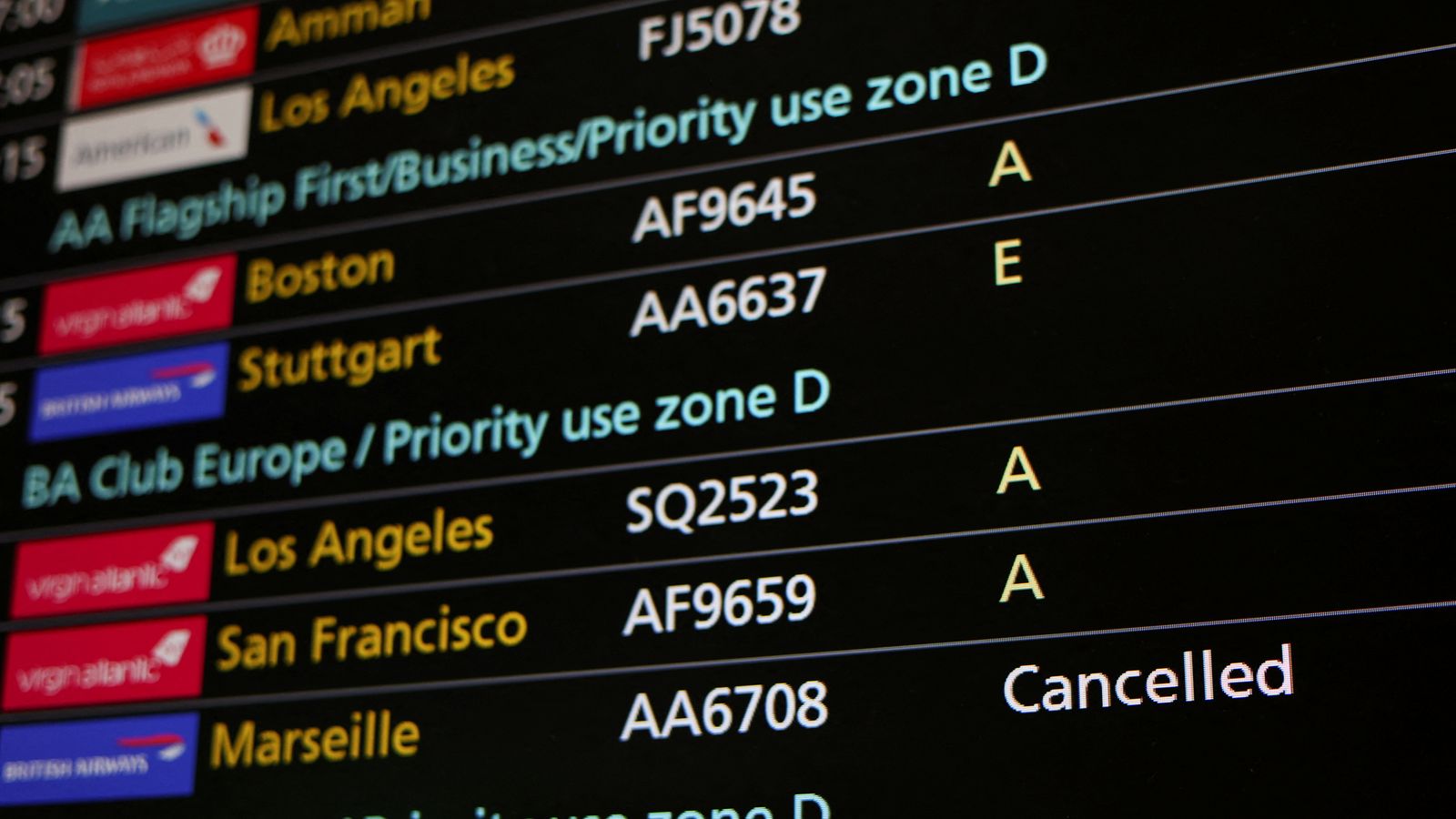Fake flights and caravans are the two most common items being sold by fraudsters in relation to travel, Lloyds Bank’s research has found.
As Britons head online to book deals for the upcoming bank holidays and summer, they have been urged to “remain vigilant”, with the average holiday scam victim being conned out of £765.
Amid rising flight costs post-COVID, people have been flocking to social media and other lesser-known websites in order to secure cheaper deals.
Scammers will try to reach customers on the same platforms to trick them into purchasing a flight or goods which don’t actually exist.
The way scammers operate, according to the bank, sees them creating fake ads for cheap flight deals or luring unsuspecting victims by pretending to sell airline tickets they say they are unable to use.
They will offer a low price and ask for a fee to change the name on the ticket.
Once the money has been sent, the scammer will disappear, leaving the victim out of pocket and without a ticket.
There have also been cases where victims showed up at the supposed holiday destination to discover the address was fake or the ‘holiday rental’ was actually someone else’s home, Lloyds said.
The offer of caravans for sale is the next most commonly reported con relating to holidays.
People are offered a caravan for a cheap price but may be looking at pictures of a vehicle that have been taken from somewhere else online.
Lloyds said people aged 35 to 44, who are often booking trips for their families, make up more than a quarter (27%) of victims of holiday scams.
Liz Ziegler, fraud prevention director at Lloyds Bank, called on the public to “always book through a trusted retailer” when uncertain about a purchase.
“When it comes to booking stays, always use your card and don’t be fooled by hosts asking you to ignore the website’s rules and transfer money directly to them,” Ms Ziegler said.
Read more on Sky News:
Paris Olympics: $50,000 for a gold – athletics becomes first sport to offer prize money to Olympians
‘Like any other day of destruction and death’: How Eid is being observed in Gaza amid Israel-Hamas war
Airbnb, which has teamed up with online safety experts Get Safe Online, said it has safeguards in place to help protect stays booked on its website, including secure payment processes.
The website said it also encourages consumers to report suspect websites or phishing emails to Airbnb for investigation and it works with third parties to report them for further action.
‘Remain vigilant’
Amanda Cupples, Airbnb’s general manager for the UK and Northern Europe, said: “As people take advantage of the upcoming bank holidays, travellers should remain vigilant when browsing for their trips online and book directly with trusted providers.
“We encourage all of our guests to book, communicate and pay for their stay on the Airbnb platform, where we have secure processes and support measures like AirCover in place to help keep our community safe.”

